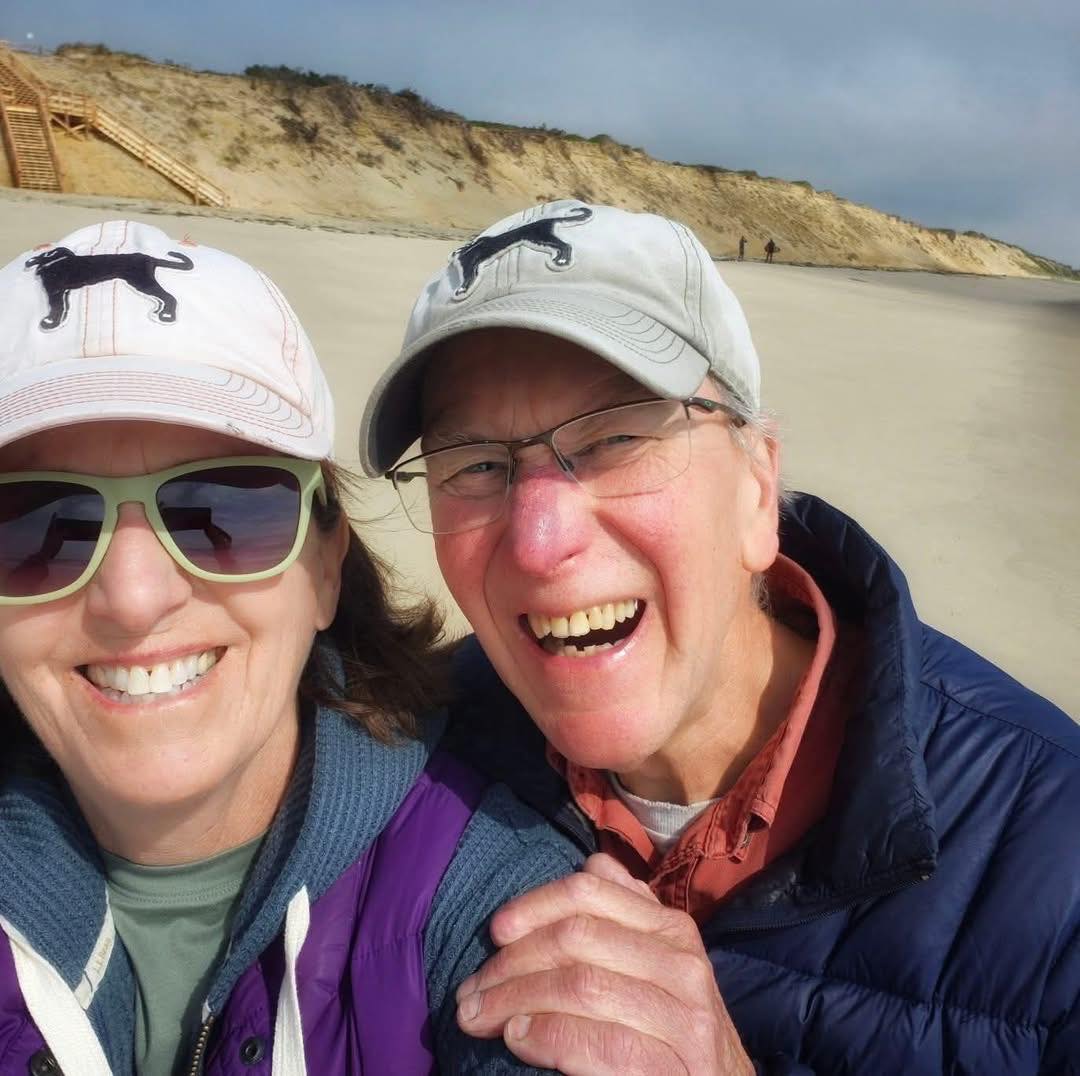Sen. Murphy, Lt. Gov. Bysiewicz Celebrate Completion of New Dorms at American School for the Deaf

Audio By Carbonatix
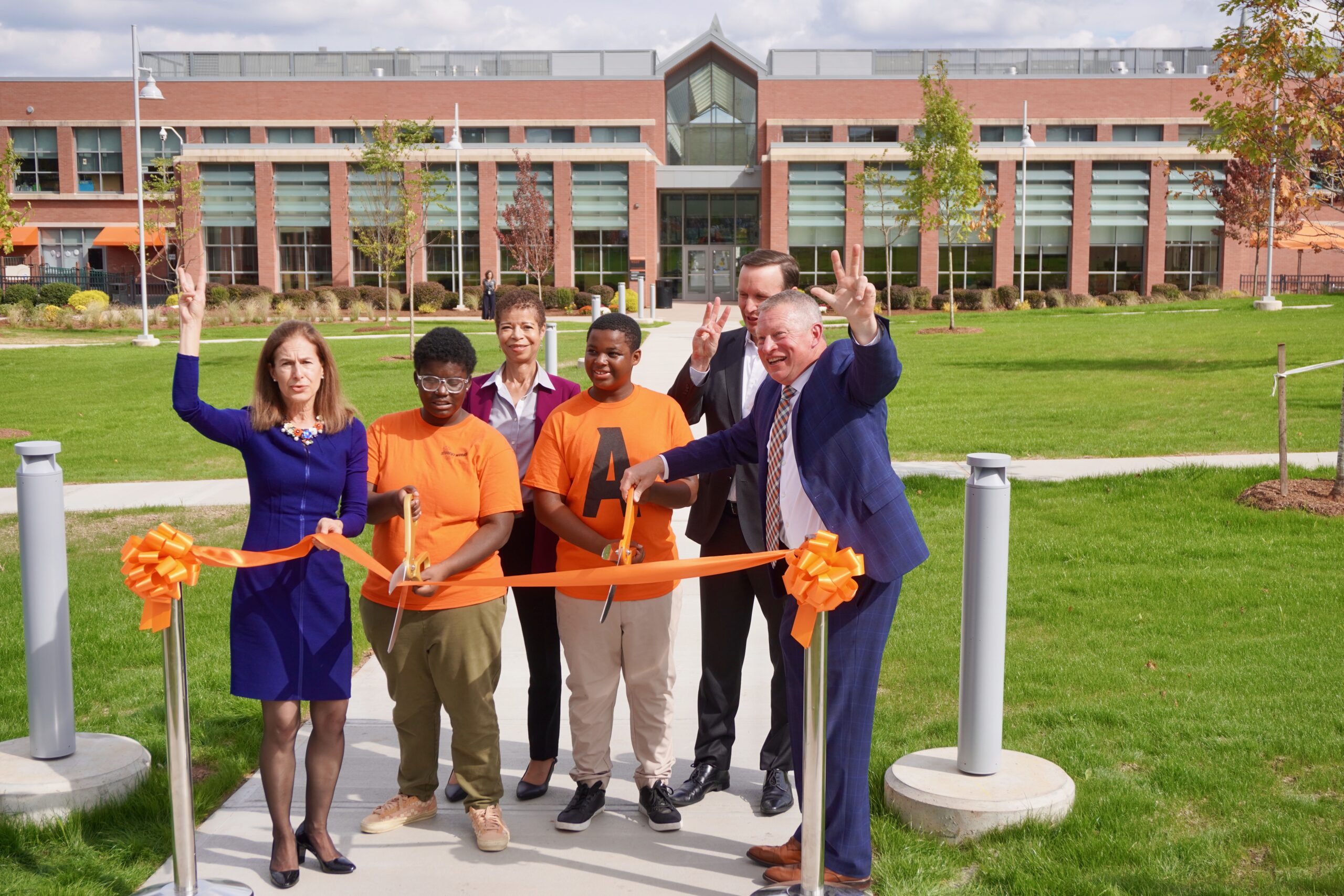
Lt. Gov. Susann Bysiewicz and U.S. Sen. Chris Murphy cut the ribbon for ASD's new dorms with ASD Executive Director Jeff Bravin, CHEFA Executive Director Jeanette Weldon, and several students. Oct. 4, 2024. Photo credit: Ronni Newton
The American School for the Deaf in West Hartford held a ribbon cutting ceremony on Oct. 4, officially opening two new dormitories.
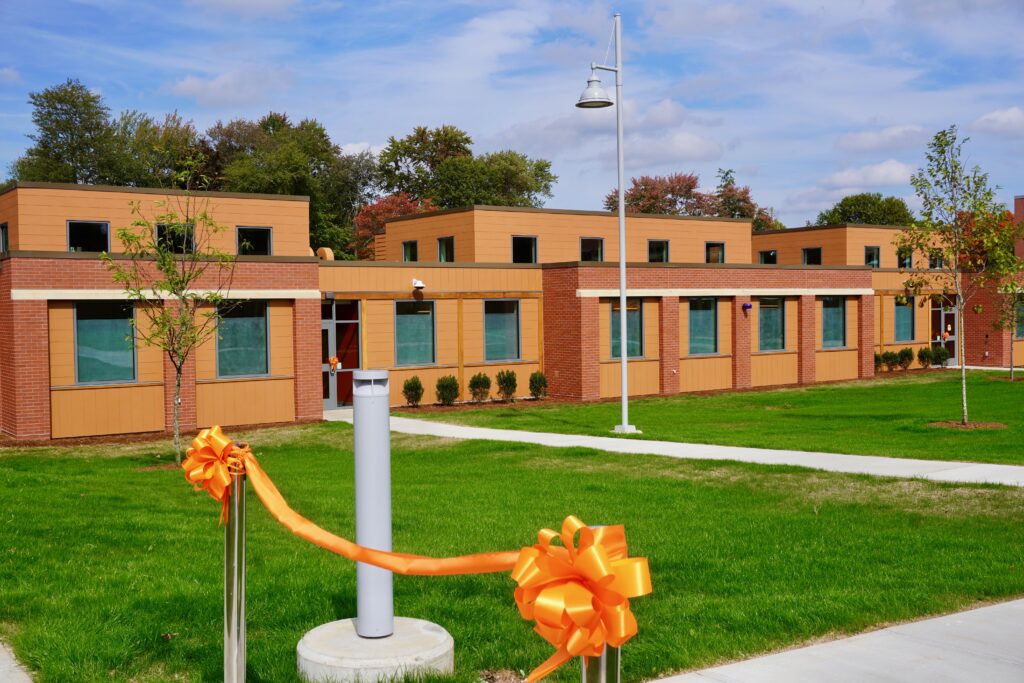
ASD held a ribbon cutting for their two new dorms on Oct. 4, 2024. Photo credit: Ronni Newton
By Ronni Newton
Less than a year after breaking ground for two new dormitories on its 35.5-acre West Hartford campus, the American School for the Deaf celebrated the project’s completion with U.S. Sen. Chris Murphy and Lt. Gov. Susan Bysiewicz helping cut the ribbon along with ASD Executive Director Jeff Bravin, CHEFA Executive Director Jeanette Weldon, and several students.
The two single-story dorms were constructed just behind the Gallaudet-Clerc Education Center, where the previous Gallaudet Building, demolished in 2015, had been located.
“The new dorms were specially designed to meet the unique needs of students enrolled in ASD’s PACES Residential Treatment Program,” ASD said in an announcement. “Our PACES program serves students between the ages of 6-22 who experience severe behavioral and emotional challenges.” The PACES program, which provides specialized therapeutic supports, operates year-round, and is one of only two of its kind in the nation.
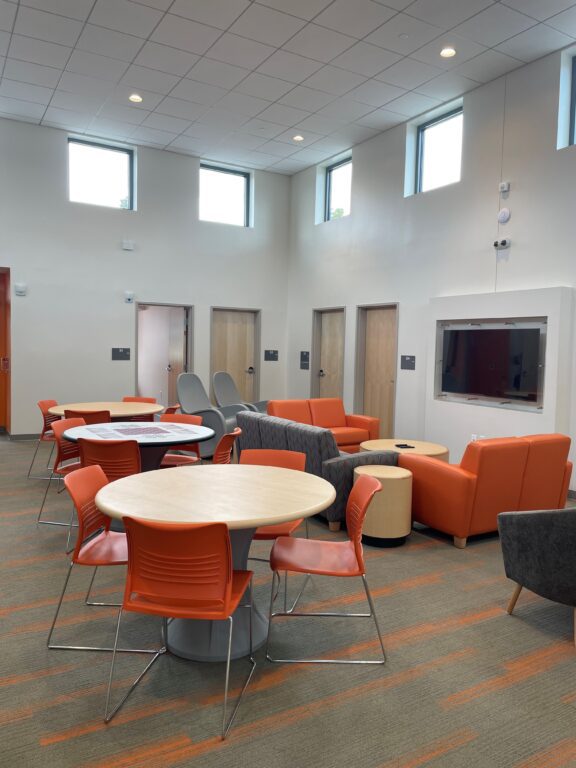
Interior of one of the new PACES dorms. Courtesy of ASD
Many of the PACES students are unable to be properly served in more traditional settings, and according to ASD’s website through this program they are taught life skills and can receive a variety of therapies – with the goal of being able to live independently.
The dorms utilize a “pods” concept, ASD said, designed to best meet the visual communication needs of the students, and provide the opportunity for students of similar ages and needs to be safely and comfortably housed together. Each dormitory includes sleeping areas, bathrooms, a kitchen area, sensory areas, common areas, mechanical space, and storage.
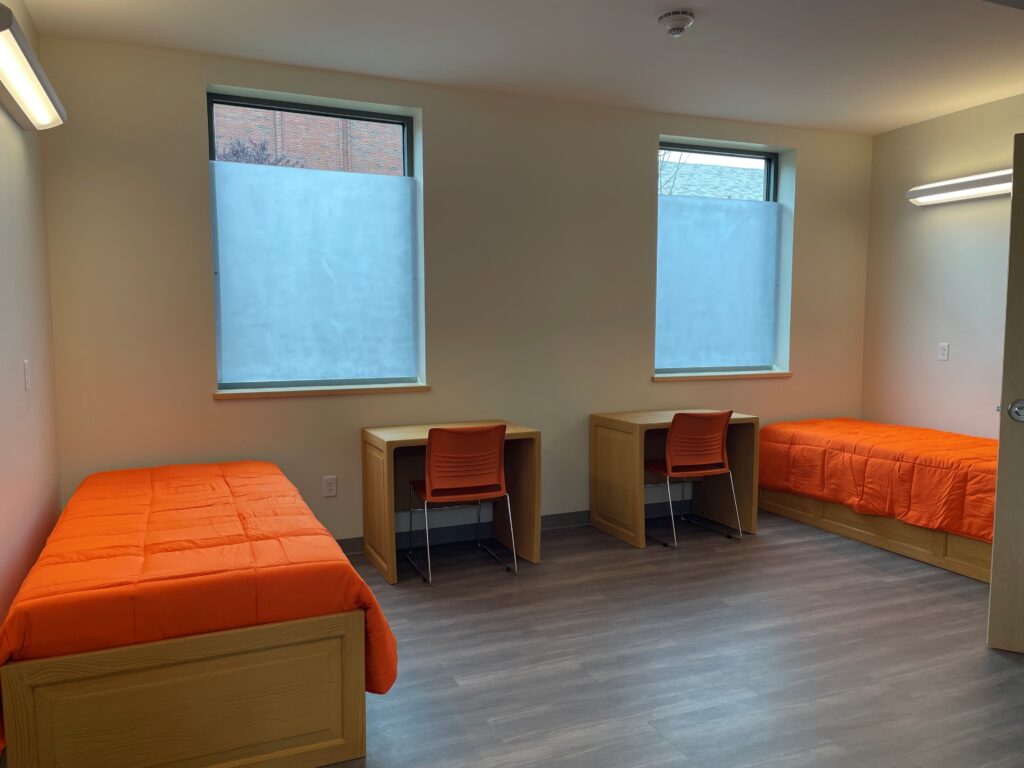
“Not only will this design aid in their social and emotional development, but the clear lines of sight will provide accessible communication in American Sign Language amongst students and staff,” ASD stated.
New Board of Directors President Barbara Cassin, who is an ASD alum, said the American School for the Deaf “has always been more than a school,” and provides benefits for deaf, hard-of-hearing, and deafblind students around the world. The opening of the new dorms is a new chapter in the PACES program, she said, and will change the way ASD supports the specialized needs of these students.
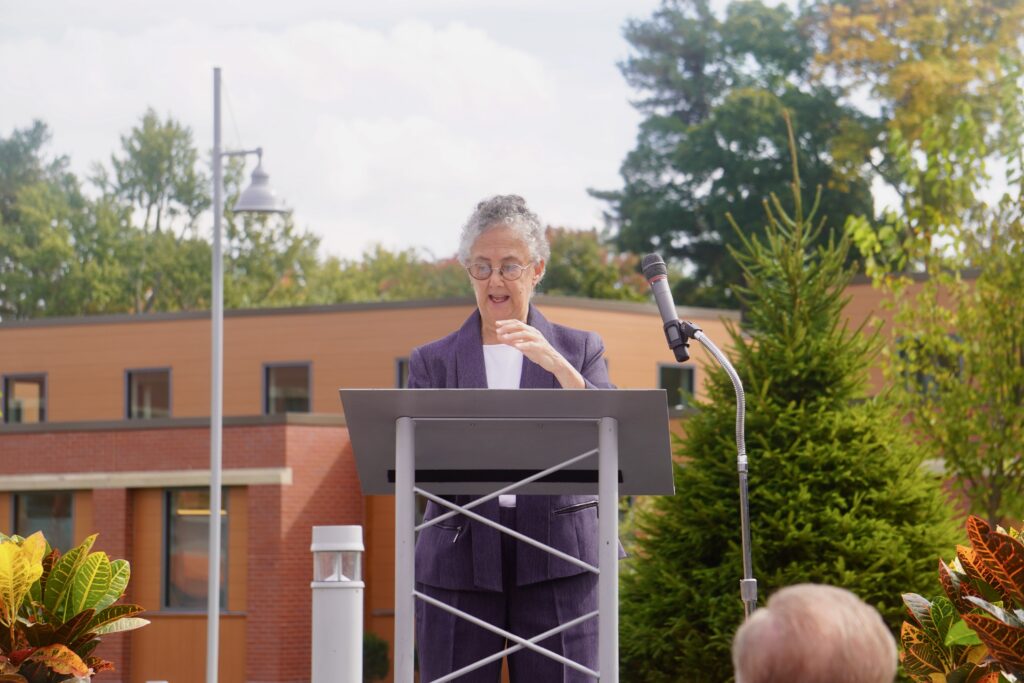
ASD Board of Directors President Barbara Cassin. ASD held a ribbon cutting for their two new dorms on Oct. 4, 2024. Photo credit: Ronni Newton
She also thanked Murphy, Bysiewicz, and state legislators and other officials for their support of the project.
Bravin also thanked all who have supported the project – current and former staff, his two predecessors who were present at the ceremony – alumni and current students.
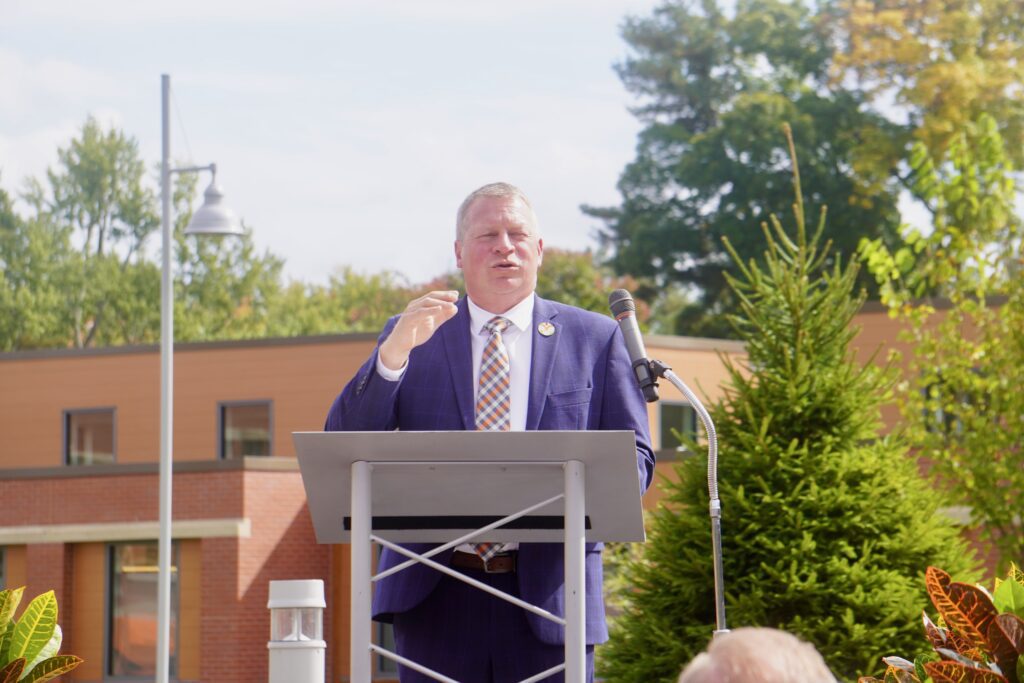
ASD Executive Director Jeffrey Bravin. ASD held a ribbon cutting for their two new dorms on Oct. 4, 2024. Photo credit: Ronni Newton
Bravin said he was so excited about the completion of the buildings that earlier in the day he took a few students into the dorms for a peek. “The students walked through the door and said, ‘Oh my gosh, this is home.’ So we did it,” Bravin said.
“Since 1817, our school has been at the forefront of deaf education. We continue to look at what’s next,” Bravin said. The PACES program, which has been in existence since 1982 – was the only option for the first group of five students. Currently, there are 42, and the opening of the dorms will allow that number to grow to 50 students, from nine different states across the country, he said. Many of those students come from foster homes or settings where there is no language communication.
“The dorms here are not the first and only project. We are looking to go on to build the right kind of academic center for our students and I am hoping we can achieve that with state and federal support,” said Bravin. “ASD understands the importance of providing facilities that meet the needs of our students and these dorms are the first step in doing so.”
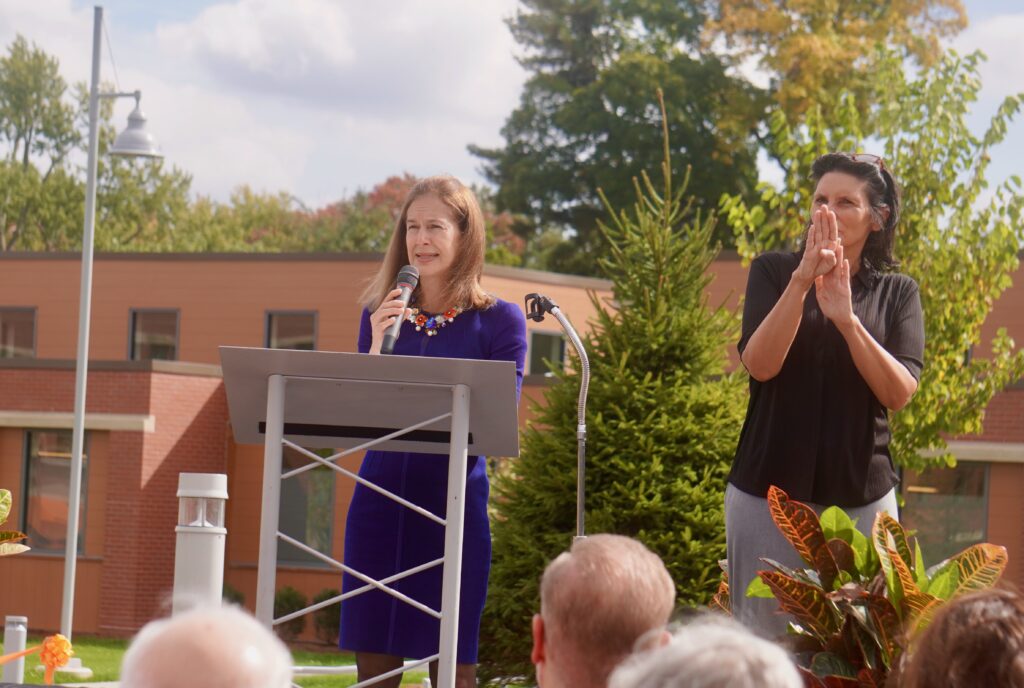
Lt. Gov. Susan Bysiewicz. ASD held a ribbon cutting for their two new dorms on Oct. 4, 2024. Photo credit: Ronni Newton
Bysiewicz said Bravin is passionate and dedicated – and makes sure to know every public official in the state. “I could tell he was a man with a plan … and over the last six years I have watched the plan literally unfold on this beautiful campus, and I understand we are not done. There are future plans.”
Workforce development, training, and the support the students will receive are critical to the future of the state, she said. “This new residential space is going to allow you to continue this great mission that you are providing,” Bysiewicz said. “Thank you for having the vision and the tenacity to see that the students need more for independent living in the future and I know that you are committed to their success.”

U.S. Sen Chris Murphy attended the ribbon cutting for ASD’s two new dorms on Oct. 4, 2024. Photo credit: Ronni Newton
Murphy thanked Bravin for his advocacy. “It’s such a joy to be able to partner with you over the years. … You have really built something exceptional, not just thinking about what they need today but getting them ready for life after school.”
Murphy said ASD “is an exceptional, exceptional institution. This is a place that provides students with a level of services that you can’t get virtually anywhere else in this country or the world. So you change the lives of students here. … You challenge states and schools systems and political leaders around the country to do more, because you set your sights high.”
The American School for the Deaf is a national leader, and it’s a joy to tell the story, Murphy said. He said he is eager to work with Sen. Richard Blumenthal and Rep. John Larson to “win some federal dollars to help you build really great state-of-the-art programming that builds on the model that you have created with these buildings.”
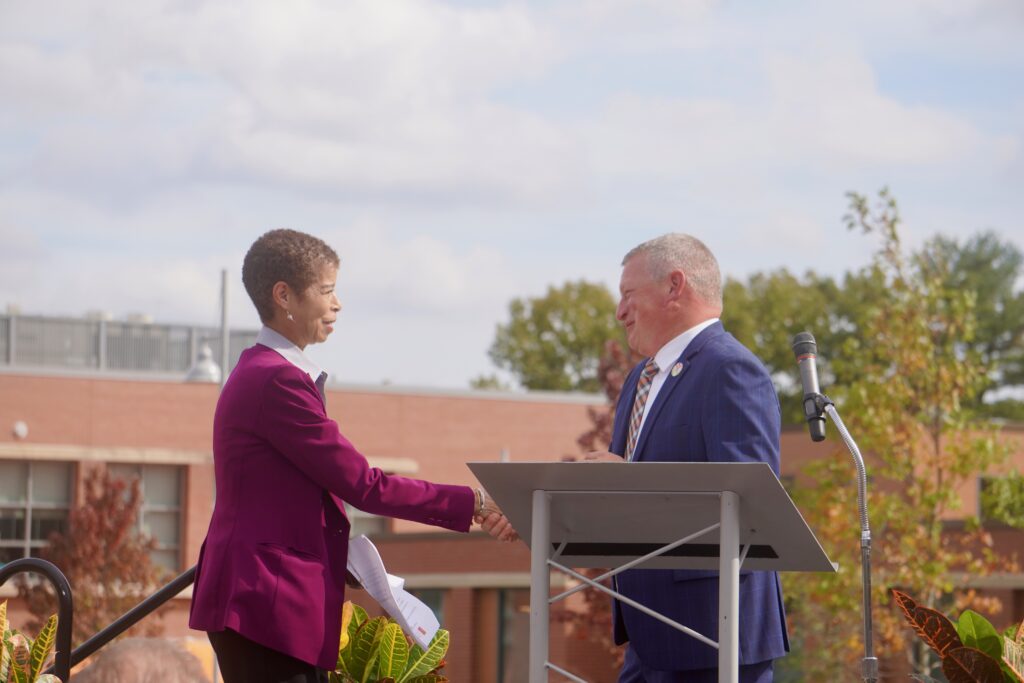
Jeanette Weldon shakes hands with ASD Executive Director Jeffrey Bravin. ASD held a ribbon cutting for their two new dorms on Oct. 4, 2024. Photo credit: Ronni Newton
CHEFA, the Connecticut Health and Educational Facilities Authority, has been a long-term partner with ASD, providing low-interest financing, and Weldon said they are thrilled to be a part of this process. “For us at CHEFA it’s exciting because we know the end result of our financing is going to be projects like this that really help and support students and families throughout Connecticut.”
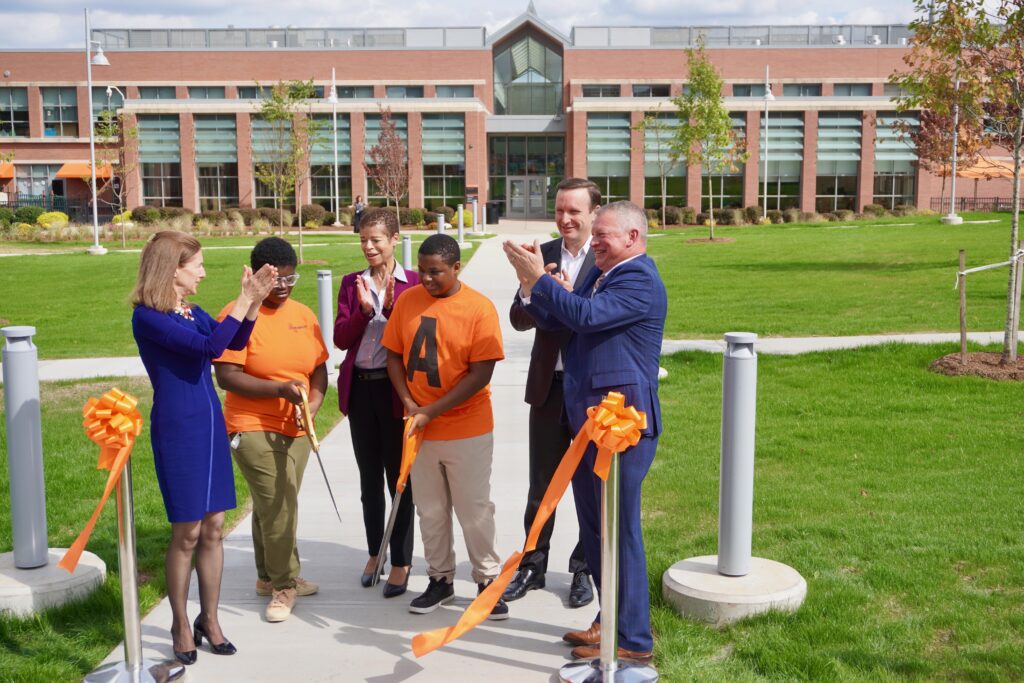
Lt. Gov. Susann Bysiewicz and U.S. Sen. Chris Murphy cut the ribbon for ASD’s new dorms with ASD Executive Director Jeff Bravin, CHEFA Executive Director Jeanette Weldon, and several students. Oct. 4, 2024. Photo credit: Ronni Newton
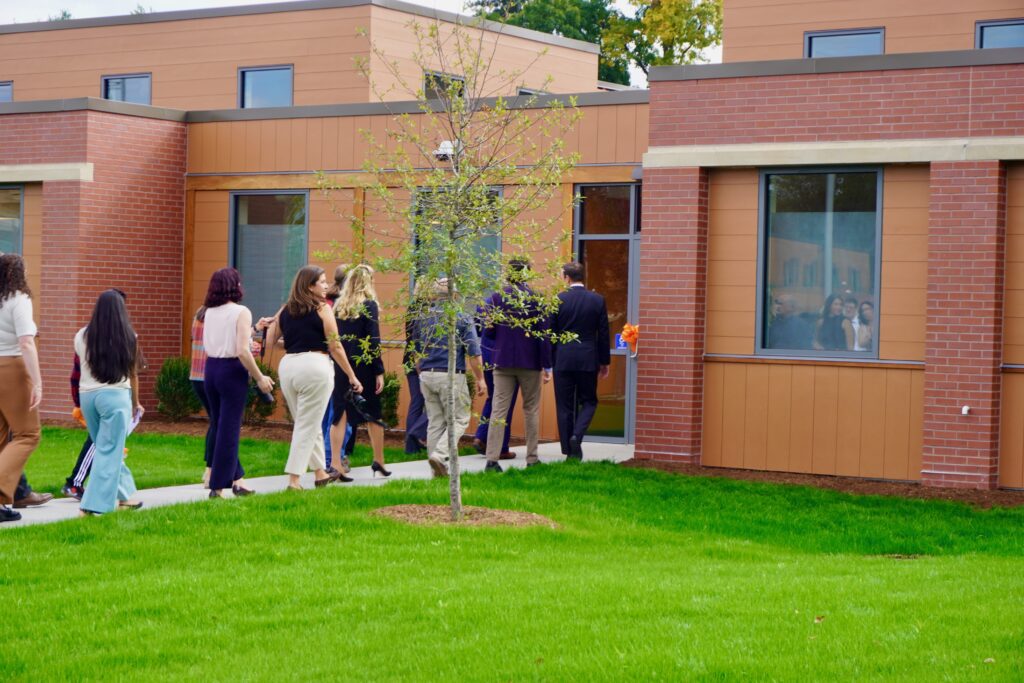
Attendees at the ribbon cutting follow U.S. Sen Chris Murphy into one of ASD’s new dorms for a tour. Photo credit: Ronni Newton
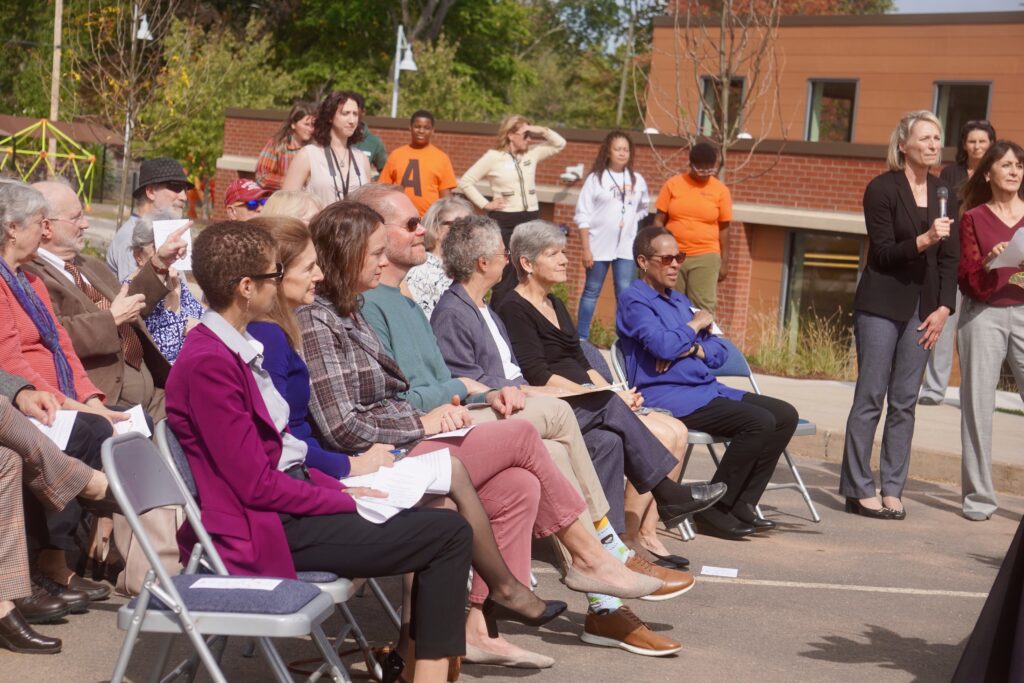
ASD held a ribbon cutting for their two new dorms on Oct. 4, 2024. Photo credit: Ronni Newton
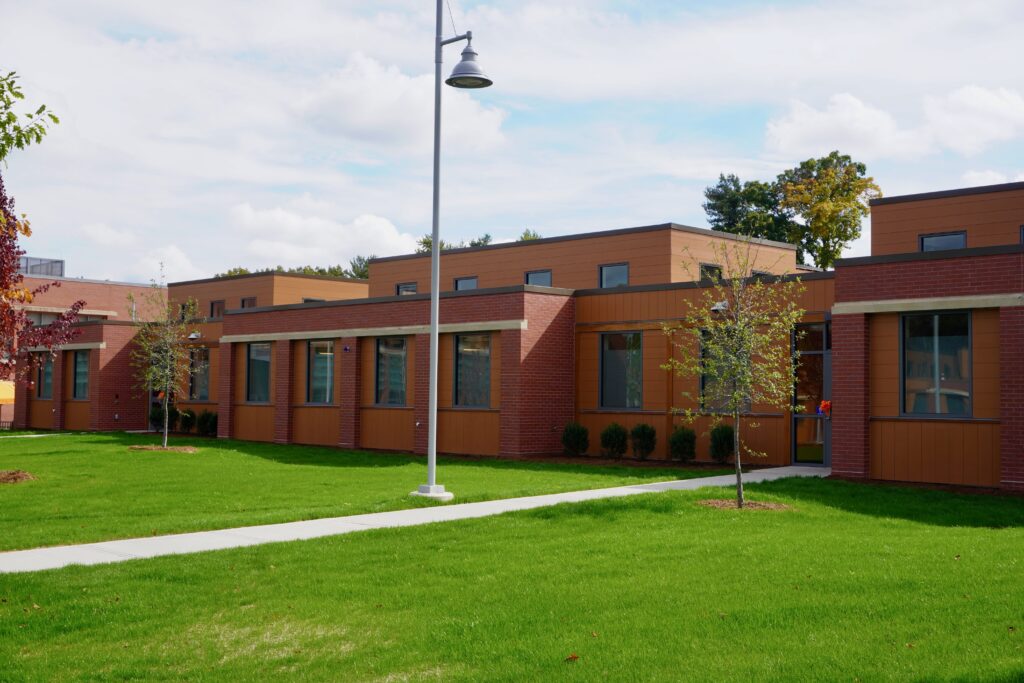
ASD held a ribbon cutting for their two new dorms on Oct. 4, 2024. Photo credit: Ronni Newton
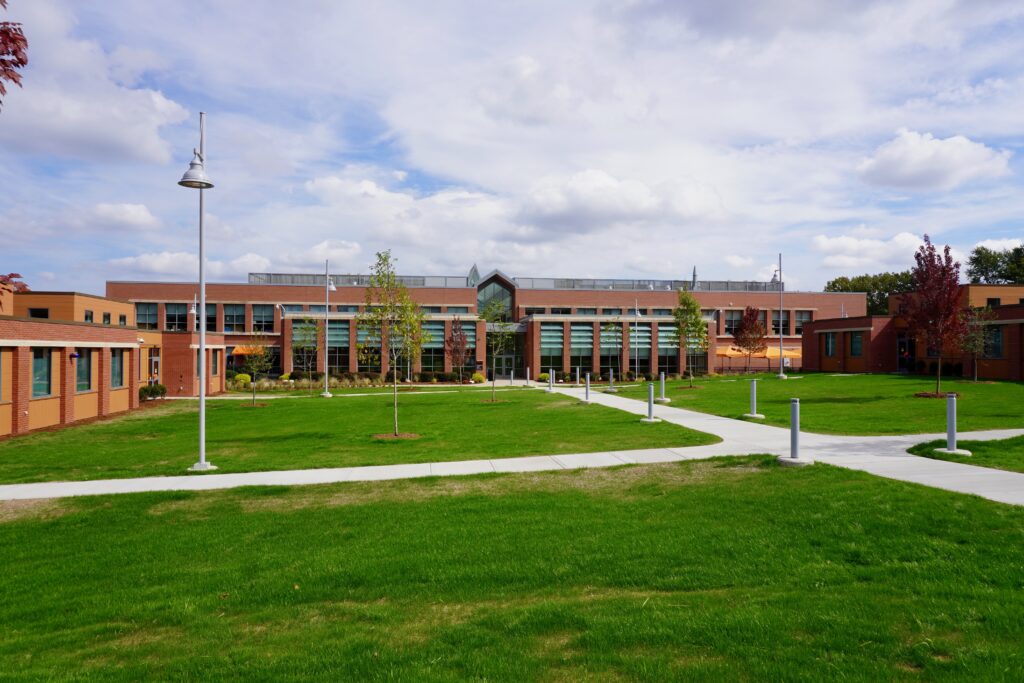
ASD’s two new dorms are located behind the Gallaudet-Clerc Education Center. Photo credit: Ronni Newton
Like what you see here? Click here to subscribe to We-Ha’s newsletter so you’ll always be in the know about what’s happening in West Hartford! Click the blue button below to become a supporter of We-Ha.com and our efforts to continue producing quality journalism.



